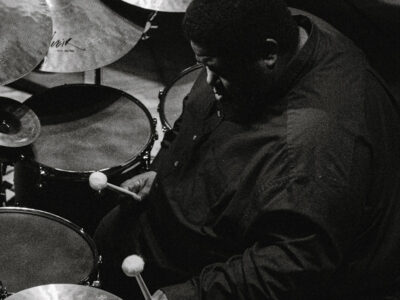In the two weeks or so following Donald Trump’s inauguration as president of the United States on January 20, Penn faculty and other experts weighed in on various aspects of the new administration—including its foreign policy, impact on the economy, and the “philosophical implications of the 45th presidency.”
On January 25, Perry World House offered “Trump’s Inauguration and Cabinet: Prospects for US Foreign Policy.” Five days out from the president’s “only America First” inaugural speech, there were already indications that his administration could represent a decisive break from the foreign-policy direction pursued by both Democratic and Republican presidents of recent decades. (See Trump’s Election and US Foreign Policy.)
PWH visiting scholar Dom Tierney and visiting fellow Thomas Wright agreed that, amid many shifts in position on other issues, Trump has held fast for decades to a few guiding principles—including a skepticism about existing US alliances, a wariness of multilateral trade deals, hard-line views on immigration, and sympathy toward Russia and authoritarianism in general. They were less certain about his ability to transform those principles into policies—and mostly hoped not.
Assessing Trump’s cabinet nominees, Tierney, an associate professor of political science at Swarthmore College, singled out Defense Secretary James “Mad Dog” Mattis as “a serious pick and not just a yes-man.” Wright, director of the Brookings Institution’s Project on International Order and Strategy, noted that Mattis, General John Kelly at Homeland Security, and former Exxon Mobil chief Rex Tillerson at the State Department, had all expressed views at odds with Trump’s at their confirmation hearings.
One possible outcome would be infighting among what Wright described as “the America First camp” of Senior Advisor Steve Bannon and company; those “driven by a desire” to wage a religious war against radical Islam, represented by Trump’s national security advisor General Michael T. Flynn (who has since resigned); and traditionalists like Mattis and Tillerson. All three camps distrust each other, “but they need the other to check the third,” he said.
Jean Galbraith, an assistant professor of law at Penn who specializes in US foreign-relations law and public international law, examined the legal parameters constraining the president’s actions.
The use of force is not subject to many legal constraints, at least when it comes to initiating conflict, she noted, and so is “a space in which Trump has a great deal of room to maneuver.”
In the case of international agreements, the president has the authority to withdraw from them on his own, but must comply with provisions in the agreements covering withdrawal. NAFTA, for example, stipulates that signatories can legally withdraw with six-months’ notice to the other parties. However, new international agreements need the consent of the other countries involved, and often the consent of Congress as well, which raises the question of what to replace existing agreements with after withdrawal.
Areas such as immigration and the environment that have foreign-policy implications are also regulated as matters of domestic law, she added. “So on immigration, there is a lot the president can do unilaterally with respect to sealing off our borders from people wanting to come in and shaping US policy with respect to enforcement for undocumented immigrants, but this is not an absolute power,” she said.
Should the Trump administration want to roll back climate regulations, she added, there will be a “lengthy procedural and legal process subject to judicial review that the Environmental Protection Agency would have to undertake.”
Galbraith described as both “interesting and terrifying” the question of “how much all these separate checks add up to” in limiting President Trump’s actions. “My own view is that collectively they do pack a great deal of power,” she said, “but that’s something that this presidency is going to test in ways we haven’t seen before.”
The Wharton School faculty on stage at the Annenberg Center’s Zellerbach Theater on January 31 for the Tarnopol Dean’s Lecture on “The Trump Administration and the Economy” were for the most part skeptical regarding the impact of such signature elements of the president’s agenda as immigration and trade policy.
Wharton Dean Geoffrey Garrett, who moderated, began by asking Finance Professor Jeremy Siegel to comment on the post-election performance of the stock market, which had topped 20,000 for the first time days earlier. The Stocks for the Long Run author answered that while investors and business were attracted by the “Republican” parts of Trump’s economic proposals—tax-cuts and regulatory rollbacks, basically—they remained skittish about the “Trump” parts.
At that point, the market had risen about 7 percent since the election, Siegel said. Given that experts estimate that the combination of tax cuts and easing regulations could boost earnings by about 20 percent, he characterized that as a cautious movement upward, tempered by fears of a trade war—any news of which could easily provoke a 10-15 percent market drop, he said.
On the subject of immigration, Kent Smetters, professor of business economics and public policy, doubted claims that deporting undocumented workers would open up job prospects for native-born workers, citing a study that looked at the likely impact of removing the 11-12 million estimated undocumented workers over a decade. It showed that jobs held by undocumented workers would not be filled by native-born workers, but instead replaced by automation. The presence of undocumented workers in the labor market instead seems to have the net effect of increasing wages for documented workers—as they take the lowest-paying, lowest-skilled jobs and push the native-born workers to move up the economic ladder, he added.
Mauro Guillen, professor of international management and director of the Lauder Institute, made a broader argument against the administration’s agenda on immigration and trade. “What are we trying to accomplish?” with these proposals, he demanded. “Reduce unemployment? To increase the rate of growth of the US economy?” The next question, he added, should be “is that the best way to accomplish the goal?”
Guillen asserted that immigration was the source of much of the dynamism in the US economy, noting that about a quarter of tech ventures in the US over the last 15-20 years were launched by immigrants.
Protectionism “is a terrible idea,” he declared; it is harmful to consumers, by its nature creates a lobby for different businesses to work to preserve their advantages, and “distorts everything.” For example, US consumers would certainly lose by having to pay higher prices if the administration followed through on the idea of funding a border wall with a 20 percent tariff on products coming from Mexico, but US workers and businesses might not win, because consumers and companies could choose goods from other foreign countries rather than American-made ones.
At about 10 percent, Mexico represents a relatively small share of the US trade deficit, Guillen said. In addition, he pointed out that Trump’s statements had already sparked a nearly 20 percent decline in the value of the peso, making the country’s products cheaper in the US; a 20 percent tariff would amount to a wash.
Several of the presentations at the Department of Philosophy’s symposium, “Trump, Philosophy, and American Politics,” held in Claudia Cohen Hall on February 3, focused on the president’s rhetoric and seeming imperviousness to fact-checking. (The entire symposium, which was livestreamed, is available for viewing on YouTube.)
Elizabeth Camp, an associate professor of philosophy at Rutgers University, listed 10 “tropes” commonly employed by Trump, from the “conspicuous non-mention” (Megyn Kelly’s “wherever,” for example) and “generic evidential” (“plenty of people are saying …”) to “sarcasm” (asking the Russians to find Hillary Clinton’s missing emails; calling President Obama the “founder of ISIS”), “alternative facts” (insisting on easily disproven claims, such as the number of Washington Metro riders on Inauguration Day 2009 compared to 2017) and “gaslighting” (persisting in denying the obvious reality when confronted).
Many of these tropes are used by everyone—and not always for bad ends, Camp added, which helps to explain their power. But combined with more “pernicious” ones like alternative facts and gaslighting they “undermine standard modes of accountability,” she said. “Fact-checking in the standard narrow sense seems to have no effect.”
Trump managed to win over enough two-time Obama voters to secure the election, due in part to his rhetorical style of being a “straight shooter” sharing a “hidden truth”; the difference between an anecdote or apocryphal story and an alternative fact “doesn’t feel that significant for people for whom those really reflect a deeper reality that they feel to be true,” she said.
Camp recommended three kinds of responses:
• “Earnest pedantry”—as, for example, in the case of Trump’s claim that he lost the popular vote because millions voted illegally, asking what can be done to investigate this rather than pointing to the lack of evidence.
• “Snarky reframing”—as represented by SNL, the Twitterverse mockery of Trump advisor Kellyanne Conway’s “Bowling Green massacre” statement, etc. “There’s comfort for some people, there’s solidarity” in this, as well as the possibility that Trump will be deflated in the eyes of some supporters—but, Camp added later, satire is no substitute for activism.
• “Visionary reframing”—which involves embedding the concerns of Trump supporters in “a different narrative or perspective so they can see themselves and their possibilities in a different way.” This will take a variety of forms depending on who’s doing the talking, she said—from Democratic politicians; to the conservative Koch brothers, whose views on immigration and trade run counter to the president’s; and even to beer commercials like Budweiser’s sentimental take on Augustus Busch’s immigrant story that played during the Super Bowl.
Eugene Kiely, a veteran journalist and director of Factcheck.org (part of the Annenberg Public Policy Center), offered a view from the trenches. From the start of his presidential campaign in 2015, Trump presented unique challenges, Kiely said.
Standard procedures such as querying the campaign about evidence supporting potentially false statements rarely worked with the Trump campaign, which was understaffed and mostly uninterested, and Trump himself “will insist he is right no matter what,” Kiely said, offering the example of his long-disproven and never retracted claim about seeing crowds cheering the collapse of the Twin Towers on 9/11.
Trump’s main interest in the media is to use them as foils—the “dishonest media,” Kiely said. (Fact-checkers, he noted, are not just dishonest but “dishonest scum” in the Trump lexicon.) He predicted that such hostility is likely to prove counterproductive in the White House, but didn’t expect the administration to change. Regardless, he said, Factcheck would continue to “do what we do,” investigating and publicizing falsehoods based on information from trusted non-partisan organizations with access to primary materials.
Liberals bear some of the blame for the current “post-truth political arena,” according to Lisa Miracchi, an assistant professor of philosophy at Penn. In its laudable attempt to make room for perspectives other than the “white, male, straight, affluent, Christian, Western worldview,” liberal society ended up rejecting any sort of bedrock principles regarding how to reason correctly and what is right and wrong, while conservatives were unwavering with regard to the “objective” truth of their convictions (abortion is immoral and should be outlawed).
Rather than being “post-truth,” in an important way candidate Trump managed to coopt “the mainstream conservative view that a good way of acquiring knowledge is to trust authority,” she said, convincing followers that his word “is a better guide to the truth than other evidence out there, just as creationists think that [about] the Bible.”
By contrast, liberals “believe” in evolution and climate change, reproductive and LGBTQ rights, opposition to the carceral state, etc., but in practice treat their positions as something like a food preference, she suggested—you’d recommend your favorite Ethiopian restaurant to your friends, but never force them to eat there. The traditional worldview has been replaced with the notion that everyone is entitled to their opinion, “because opinions can’t be right or wrong.” While admittedly a generalization, “this idea is in the air, so to speak, structuring how we collectively argue and respond to political problems,” she said.
Liberals’ effectiveness in countering Trump’s agenda is hobbled by a “habit of compromise” that has its roots in doubt “that we have rationality and morality on our side.” However, she said, “only those who do not fear losing their rights and safety, who do not understand that the gravity of these issues for so many Americans create special duties and responsibilities, can urge compromise and pragmatism right now. So many of us do not have that luxury.”—J.P.




